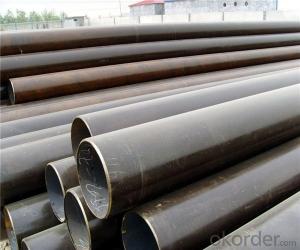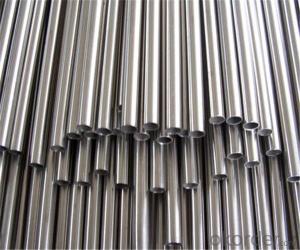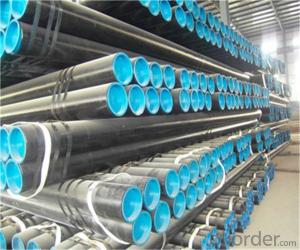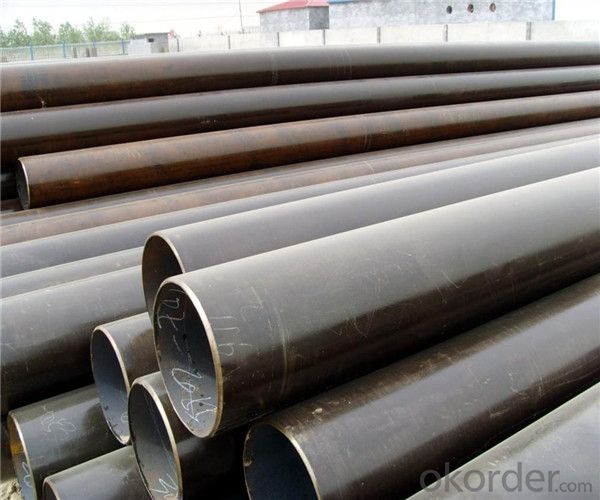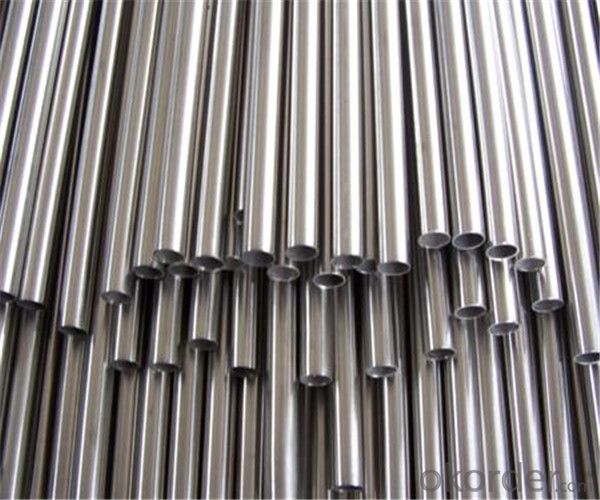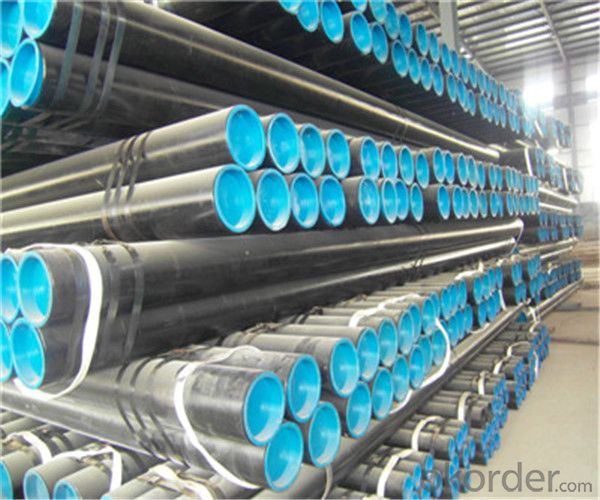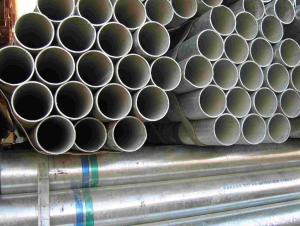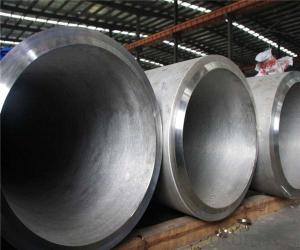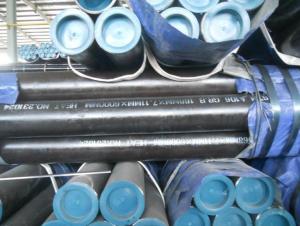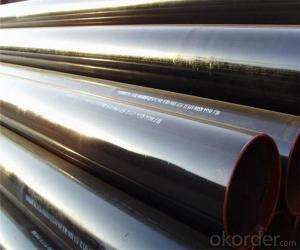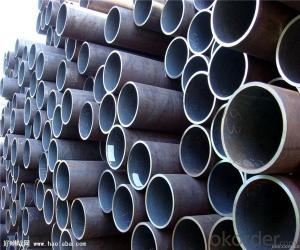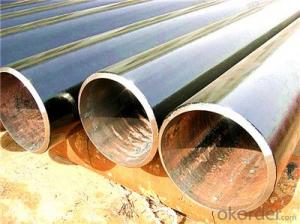2016 Seamless steel pipe from CNBM International Group with strong heat dissipation ability
- Loading Port:
- Tianjin
- Payment Terms:
- TT or LC
- Min Order Qty:
- 100 m.t.
- Supply Capability:
- 3000000 m.t./month
OKorder Service Pledge
OKorder Financial Service
You Might Also Like
PRODUCT DETAILS
1.Structure of Seamless Steel Pipe Description:
A large amount of Seamless Steel Pipes is offered to the clients at cost effective rates. These pipes are extremely durable, resistant to corrosion and have high tensile strength. Our pipes are used in nuclear plants, power plants, refineries and construction industry across the country. Furthermore, we are capable of providing these seamless pipes to the clients in bulk quantity.
2.Main Features of the Steel Pipe:
• High manufacturing accuracy
• High strength
• Small inertia resistance
• Strong heat dissipation ability
• Good visual effect
•Reasonable price
3.Packaging & Delivery:
| Packaging Details: | Seaworthy packages, bundles wrapped with strong steel strip |
| Delivery Detail: | 15-30 days after received 30% TT |
4.Seamless Steel Pipe Specification:
| Standard: | GB, DIN, ASTM,ASME, ASTM A106-2006, ASTM A53-2007 |
| Grade: | 10#,20#, 45#, 16Mn |
Thickness: | 8 - 33 mm |
| Section Shape: | Round |
| Outer Diameter: | 133 - 219 mm |
| Place of Origin: | Shandong, China (Mainland) |
| Secondary Or Not: | Non-secondary |
| Application: | Hydraulic Pipe |
| Technique: | Cold Drawn |
| Certification: | API |
| Surface Treatment: | factory state or painted black |
| Special Pipe: | API Pipe |
| Alloy Or Not: | Non-alloy |
| Length: | 5-12M |
| Outer Diameter: | 21.3-610mm |
5.Product pictures
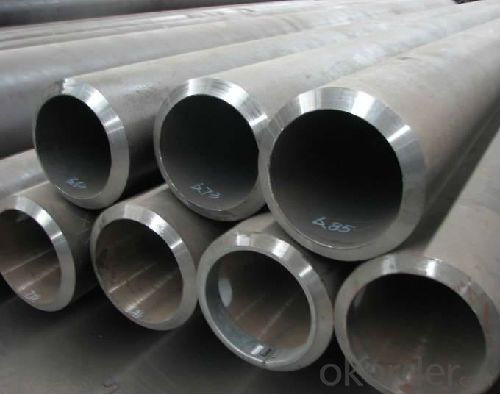
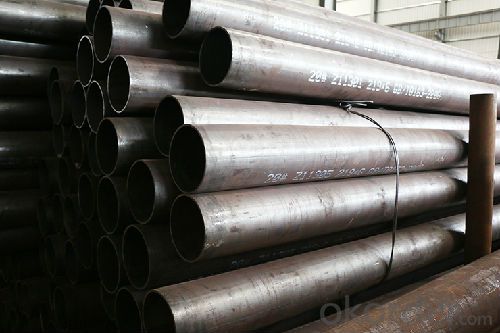
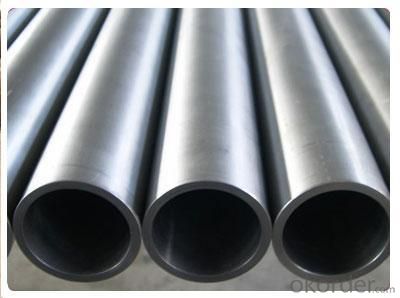
6.FAQ of Seamless steel pipe:
①How is the quality of your products?
Our products are manufactured strictly according to national and internaional standard, and we take a test
on every pipe before delivered out. If you want see our quality certifications and all kinds of testing report, please just ask us for it.
Guaranteed: If products’ quality don’t accord to discription as we give or the promise before you place order, we promise 100% refund.
②How about price?
Yes, we are factory and be able to give you lowest price below market one, and we have a policy that “ for saving time and absolutely honest business attitude, we quote as lowest as possible for any customer, and discount can be given according to quantity”,if you like bargain and factory price is not low enough as you think, just don’t waste your time.Please trust the quotation we would give you, it is professional one.
③Why should you chose us?
Chose happens because of quality, then price, We can give you both.Additionally, we can also offer professional products inquiry, products knowledge train(for agents), smooth goods delivery, exellent customer solution proposals.Our service formula: good quality+good price+good service=customer’s trust.
SGS test is available, customer inspection before shipping is welcome, third party inspection is no problem.
Any question, pls feel free to contact us !
- Q: How are steel pipes insulated for thermal applications?
- Steel pipes are commonly insulated for thermal applications using various materials such as fiberglass, mineral wool, or foam insulation. These insulating materials are typically wrapped around the steel pipes to create a protective barrier that reduces heat transfer. Additionally, a vapor barrier may be installed to prevent moisture condensation. This insulation helps to maintain the desired temperature of the fluid or gas being transported through the pipes and prevents energy loss.
- Q: What is the typical length of a steel pipe?
- The typical length of a steel pipe can vary depending on its purpose and application. However, standard lengths for steel pipes often range from 20 feet to 40 feet.
- Q: What is the difference between internal coating and external lining of steel pipes?
- Internal coating and external lining are two different methods used to protect steel pipes from corrosion and other forms of damage. Internal coating refers to the process of applying a protective layer or coating to the inner surface of the steel pipe. This is done to prevent the pipe from corroding or being damaged by the fluid or substance being transported through it. The coating is typically made of materials such as epoxy, polyurethane, or polyethylene, which provide a barrier between the pipe and the transported material. Internal coating helps to extend the lifespan of the pipe and maintain the quality of the transported material. On the other hand, external lining refers to the process of applying a protective layer or lining to the outer surface of the steel pipe. This is done to protect the pipe from external factors such as soil, moisture, chemicals, or physical damage. The external lining is usually made of materials such as polyethylene, polypropylene, or fusion-bonded epoxy. The lining acts as a barrier, preventing corrosive substances from coming into contact with the pipe and causing damage. It also helps to maintain the structural integrity of the pipe and prevent any leaks or cracks from forming. In summary, the main difference between internal coating and external lining of steel pipes is the location of the protective layer. Internal coating is applied to the inner surface of the pipe, while external lining is applied to the outer surface. Both methods aim to protect the pipe from corrosion and damage, but they focus on different aspects of pipe protection.
- Q: Are steel pipes suitable for use in chemical plants?
- Yes, steel pipes are suitable for use in chemical plants. Steel pipes offer excellent resistance to corrosion, high durability, and can withstand high temperatures and pressures commonly found in chemical processing. Additionally, steel pipes can be easily welded, making them versatile for various chemical applications.
- Q: How do you clean and maintain steel pipes?
- To clean and maintain steel pipes, start by removing any dirt, debris, or rust using a wire brush or sandpaper. Then, wash the pipes with a mild detergent and warm water solution, using a cloth or sponge to scrub away any remaining grime. Rinse thoroughly with clean water and dry the pipes completely to prevent moisture-related issues. To maintain steel pipes, regularly inspect them for signs of corrosion or damage, and apply a protective coating or paint if necessary. Additionally, ensure proper drainage, avoid exposure to harsh chemicals, and promptly address any leaks or repairs needed to extend the lifespan of the pipes.
- Q: How are steel pipes used in industrial manufacturing processes?
- Steel pipes are commonly used in industrial manufacturing processes for various purposes such as transporting fluids, gases, and solids, as well as providing structural support. They are used in industries like oil and gas, construction, automotive, and chemical manufacturing. Steel pipes offer high durability, strength, and resistance to corrosion, making them ideal for handling harsh environments and high-pressure applications. Additionally, they can be easily welded, bent, and manipulated to fit specific requirements, allowing for efficient and cost-effective installations.
- Q: Can steel pipes be used for geothermal applications?
- Yes, steel pipes can be used for geothermal applications.
- Q: How are steel pipes used in high-rise buildings?
- Steel pipes are commonly used in high-rise buildings for various purposes. They are primarily used for structural support as they provide strength and durability, allowing the building to withstand the vertical loads and forces that occur due to its height. Steel pipes are also used for plumbing systems, carrying water and other fluids throughout the building. Additionally, they can be used for HVAC systems, providing ventilation and air conditioning to each floor. Overall, steel pipes are integral components in high-rise buildings, ensuring the safety, functionality, and comfort of the occupants.
- Q: Are steel pipes suitable for high-temperature applications?
- Yes, steel pipes are suitable for high-temperature applications. Steel has excellent heat resistance properties, and steel pipes can withstand high temperatures without deformation or structural failure. Additionally, steel pipes can maintain their strength and durability even under extreme heat conditions, making them a reliable choice for various industrial and commercial applications involving high temperatures.
- Q: What is the difference between steel pipes and aluminum pipes?
- The main difference between steel pipes and aluminum pipes lies in their composition and properties. Steel pipes are made of an alloy of iron and carbon, which provides them with excellent strength and durability. They are often used in applications that require high-pressure or extreme temperatures. On the other hand, aluminum pipes are composed of aluminum, a lightweight metal that offers good corrosion resistance. Aluminum pipes are commonly used in industries where weight is a concern, such as aerospace and automotive. Overall, the choice between steel and aluminum pipes depends on the specific requirements of the application.
Send your message to us
2016 Seamless steel pipe from CNBM International Group with strong heat dissipation ability
- Loading Port:
- Tianjin
- Payment Terms:
- TT or LC
- Min Order Qty:
- 100 m.t.
- Supply Capability:
- 3000000 m.t./month
OKorder Service Pledge
OKorder Financial Service
Similar products
Hot products
Hot Searches
Related keywords
